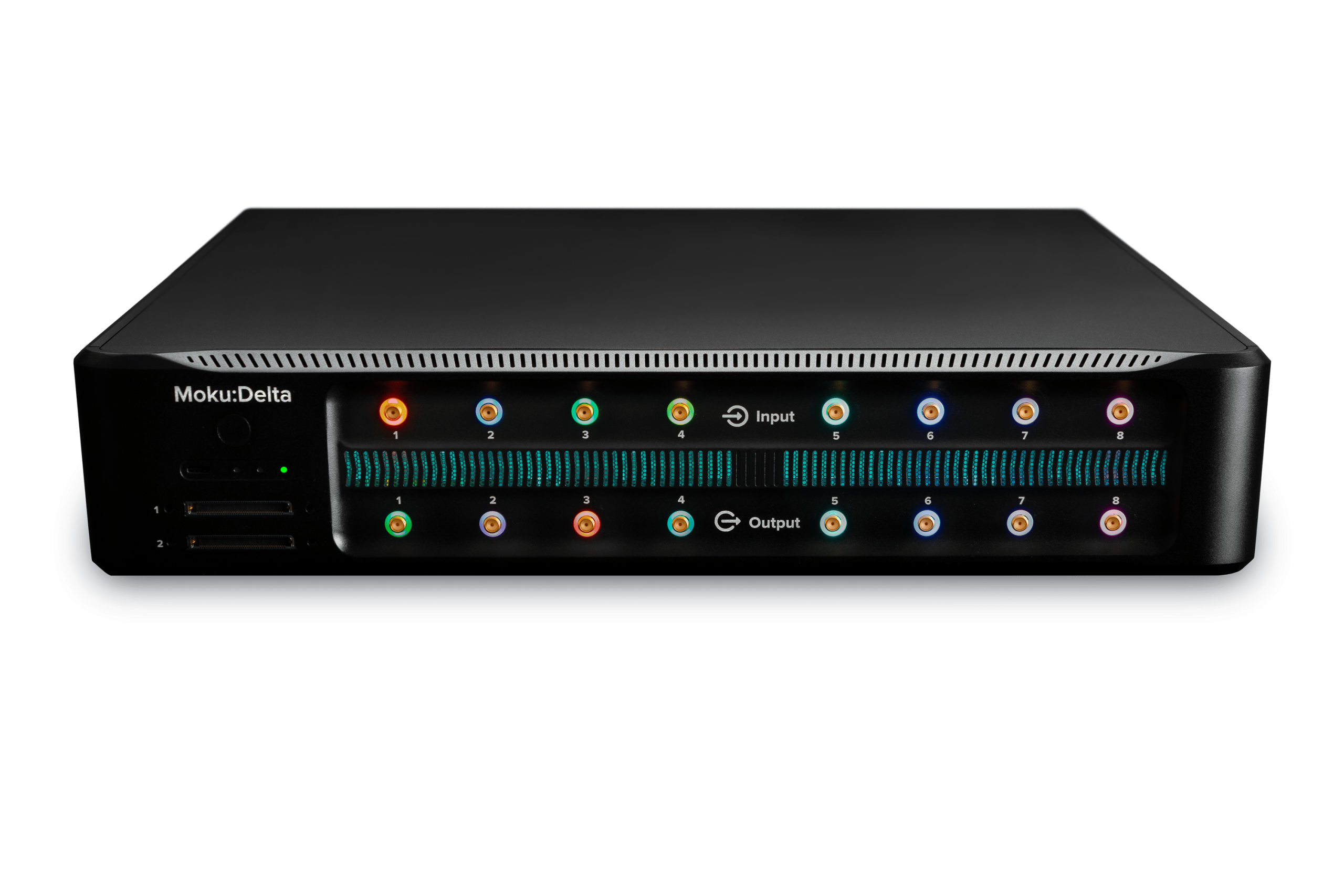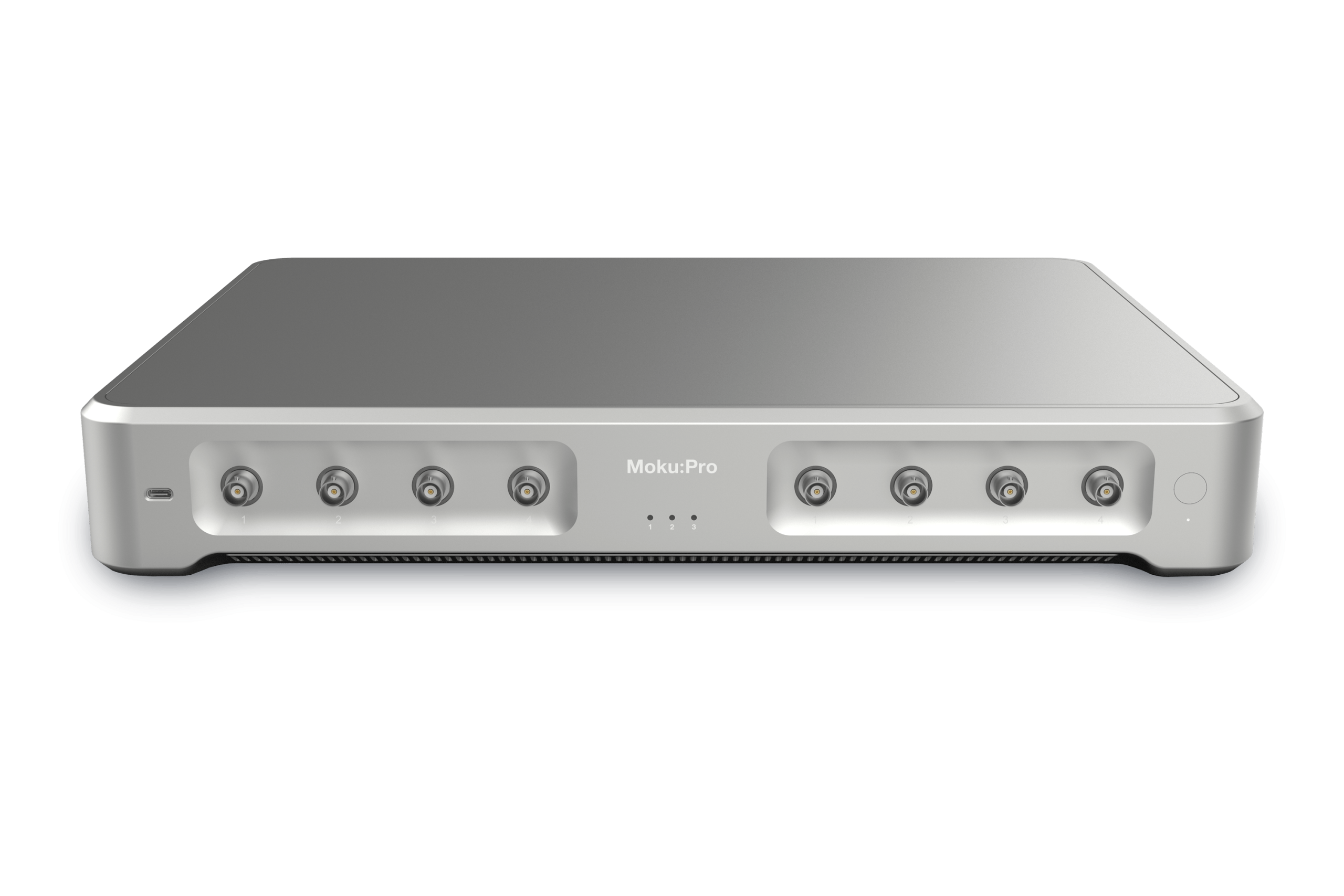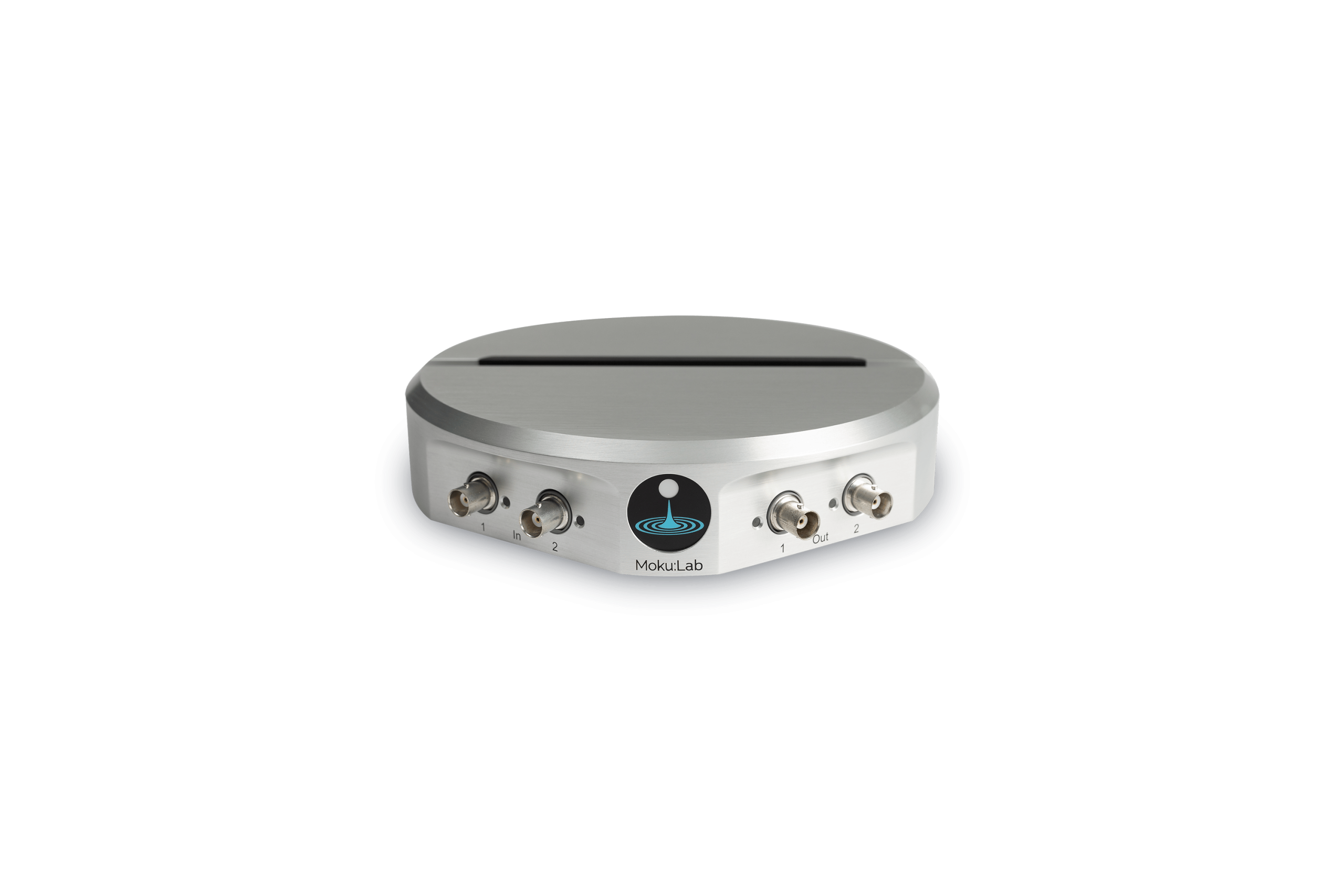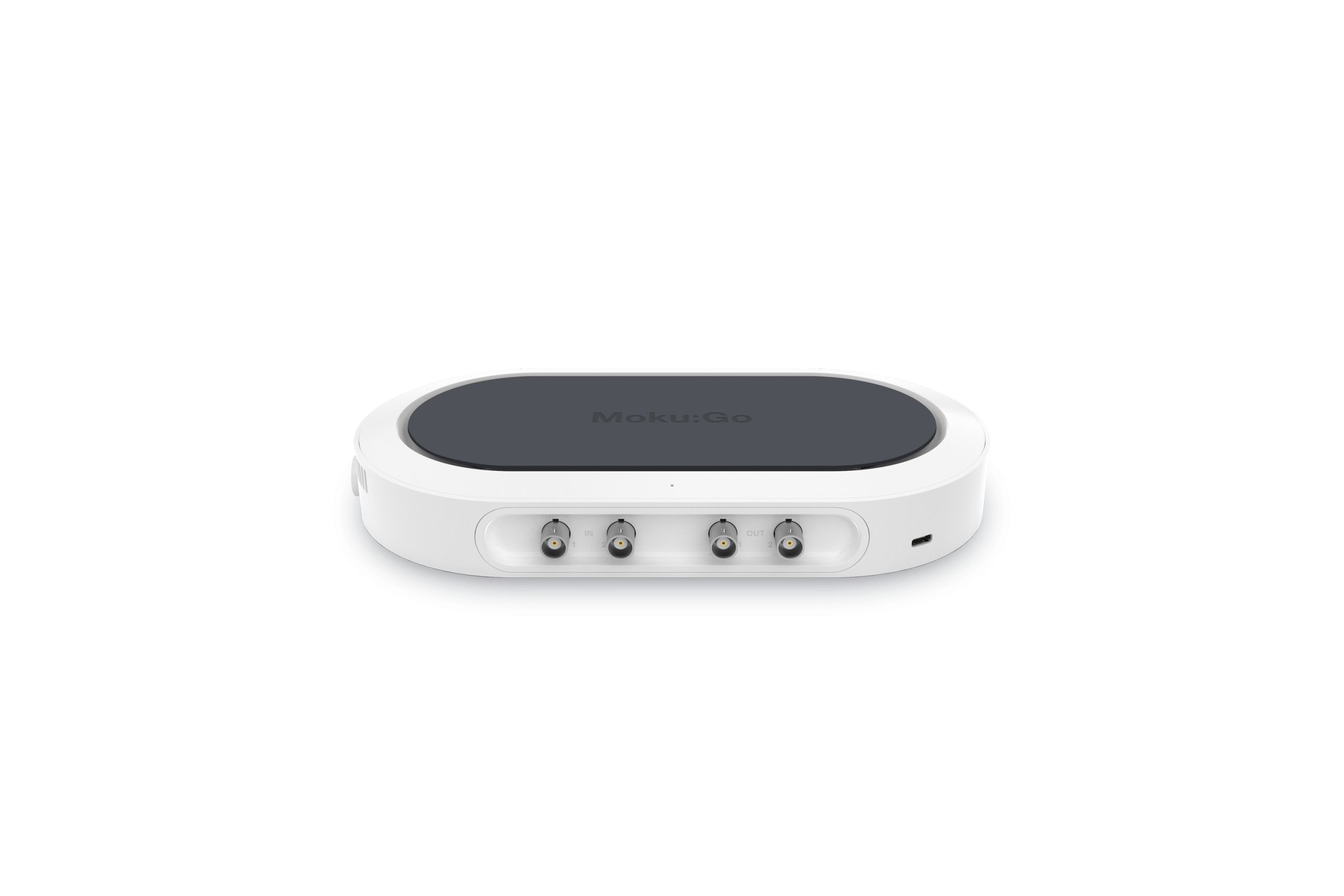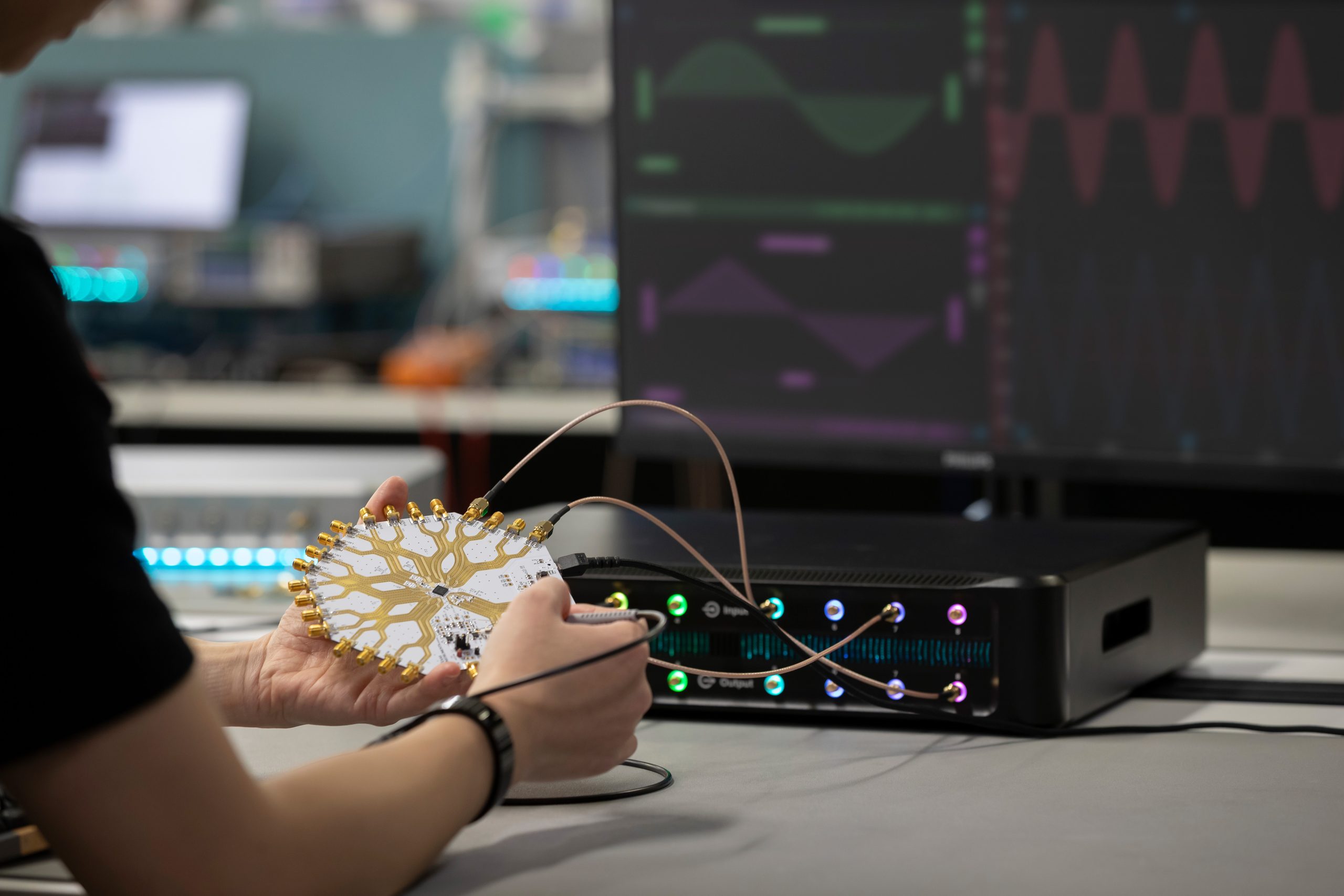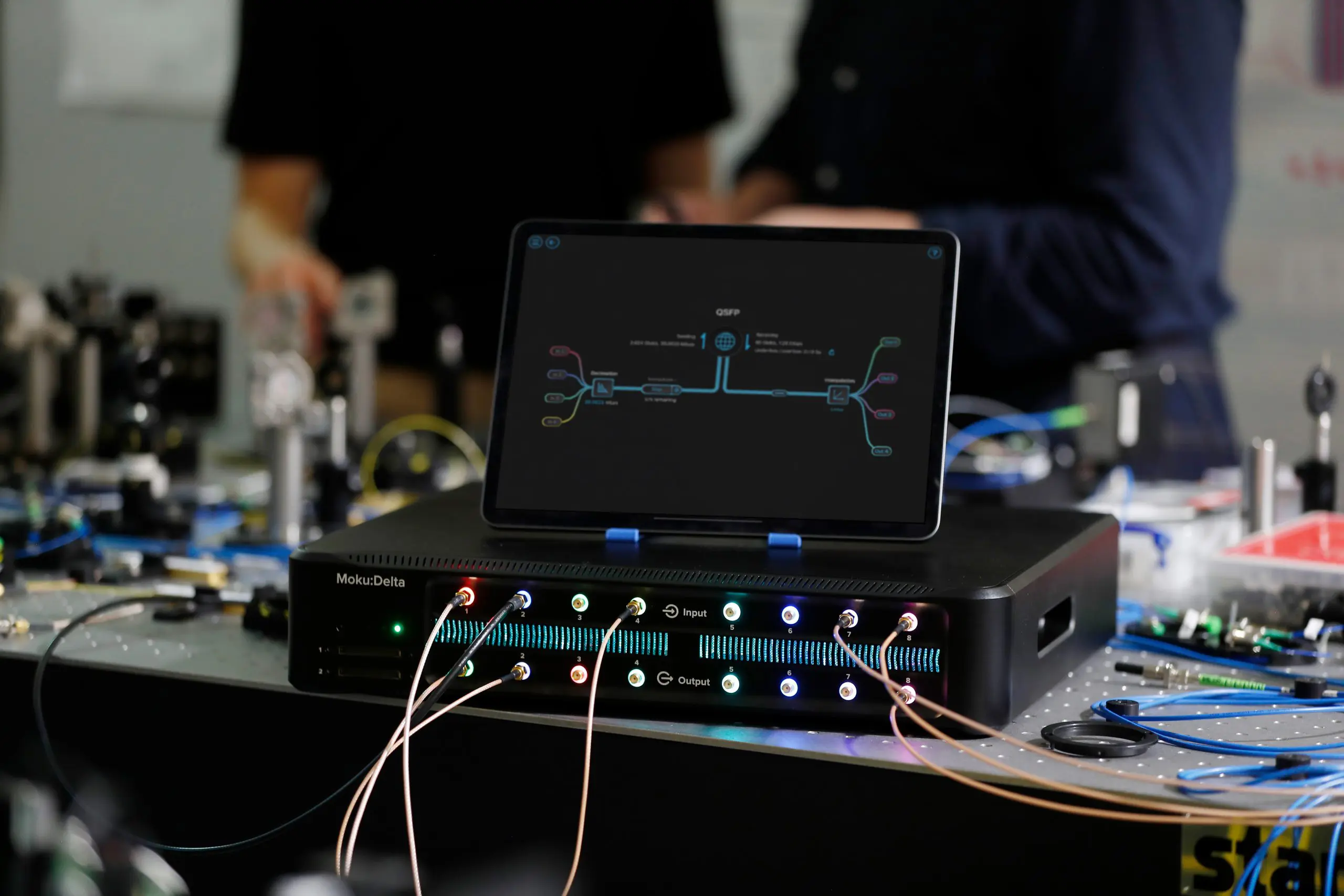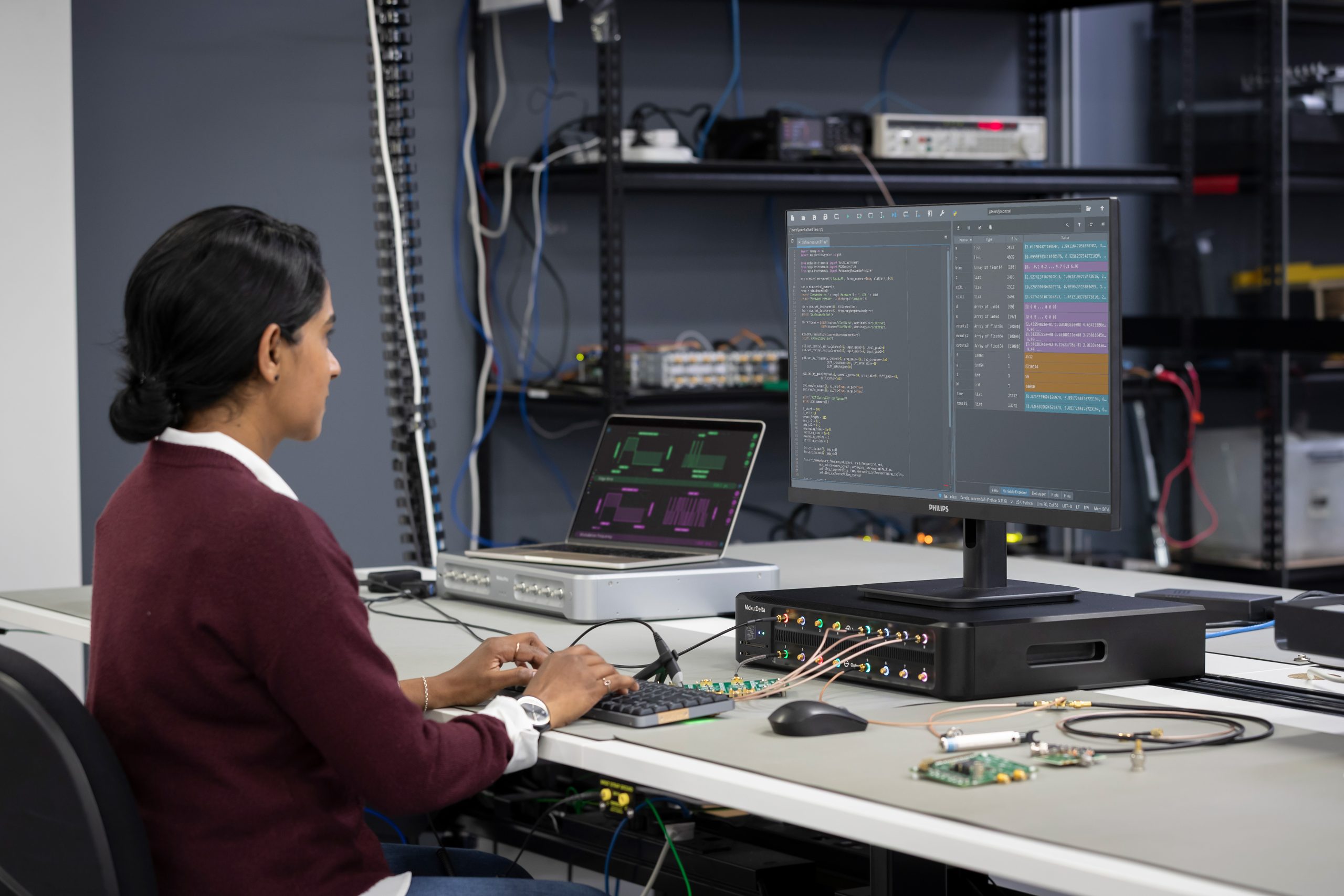Webinar details
Date: September 10, 2024
Speaker: Hank Long
Overview
Due to its powerful processing capabilities and toolboxes, MATLAB is widely used to automate experimental control and results analysis across diverse research fields, including bioinformatics, machine learning, and experimental physics. Its robust computational power ensures efficient handling of complicated data, intensive simulations, and advanced algorithm development, making it an indispensable tool for researchers seeking high performance and precision.
During this presentation, we teach you how to use MATLAB to implement an experimental control stack with Moku, a family of reconfigurable, FPGA-based instruments, to maximize efficiency and speed. Our API integration merges flexible Moku hardware with MATLAB to help you seamlessly establish instrument parameters, perform automated data analysis, and generate real-time animations of experimental data. Looking for the MATLAB scripts covered in the webinar? Get them here. For detailed answers to audience questions — including how to perform algebraic operations and send the result as an analog output, when to use the get_data() function to store data, and more — check out our blog.
Join us to:
- Learn how to get started with the Moku MATLAB API, from basic installation to connecting and configuring instruments.
- Learn how to implement scripts for functions such as automatic noise floor analysis, frequency sweeps with lock-in detection, and data streaming.
- Discover new ways to accelerate your experiments with reconfigurable instrumentation and MATLAB.The webinar includes a presentation, demonstration, and live Q&A session.
